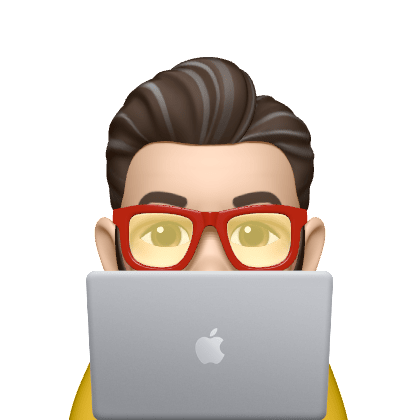The Internet, the World Wide Web, Online Gaming, Wikipedia, Social Media, Virtual Reality, and (ahem..) The Metaverse. An incomplete list of technologies meant to connect, inform, and often escape our humanity. These technologies have been predicted and dissected by theorists and technologists over the past 150 years. The rhetoric surrounding this media critique often revolves around the means of reproduction and control of any given medium. Having its foundation in Marxist philosophies, warnings about capitalist control of these communications technologies come from authors such as Ted Nelson, Fredric Jameson, and Marshall McLuhan. These cautionary signifiers in media theory provide an early look into capitalism and neoliberal policies that seek to erode and control our rights as privacy and ownership are surrendered in the name of convenience and affordability.
In the mid-to-late 20th century, academics were beginning to take note of the potential of the interconnected computer as a new medium. Vanavar Bush introduced the idea of the Memex in 1945 as hypothetical interconnected machines able to store and share worlds knowledge [3]. This idea was prognosticated to counter WWII violence and the destruction the western scientific community unleashed on the world via the new atomic age. The Memex would mechanize and store the vast amounts of information flowing in from the (mostly government funded) post-war scientific community. While discussing Memex’s “associative” links that would eventually spur the invention of hypertext and the world wide web via Ted Nelson and Tim Berners-Lee. Bush states, “All our steps in creating or absorbing material of the record proceed through one of the senses—the tactile when we touch keys, the oral when we speak or listen, the visual when we read. Is it impossible that someday the path may be established more directly?” [3]. That direct path of human knowledge and communication would take 70 more years to evolve into an economically viable and commoditized tool for the masses.
The scaffolding of the modern information network is managed via entities like the multinational World Wide Web Consortium (W3C). However, the underlying physical infrastructure and the platforms that dominate modern social communication are led by large multinational corporations [5]. Jameson describes this economic/military command and late-stage capitalism as “postmodernism”; a political stance on multinational capitalism [5]. This postmodern cultural dominance in the primary economic and creative driving force of the web today. Our sovereign rights (at least here in the US) do not apply to a corporate term of service. At least for now, the constitution has no authority for enforcement on the internet. So as our lives become more digital via social media, mixed realities, and consumer products aimed at making our lives easier, we enter a digital state who’s borders are controlled via shareholders and an ever-evolving privatized general terms and conditions agreement.
Contemporary western media platforms come in all shapes and sizes. There are global social media platforms such as Twitter, TikTok, Instagram, WhatsApp, Facebook, YouTube, QQ, Wexin and Douyin, to name a few. Multinational news entities such as Al Jazeera
and The BBC, span the globe providing information to anyone in real time. Operating systems and applications are provided free of charge for your connected devices. User-generated content is produced, monetized, and sold to advertisers on almost every platform on the web. This information is filtered through algorithms specifically tailored through machine learning to your sociopolitical preferences as not to offend your inherent bias, discouraging you from seeking a new corporate platform in which to curate your daily feed. Each of these “free to use” platforms has a Terms of Service Agreement (TOS) that dictates the restrictions in using the service and provides informed consent to the end user for gathering personal data. Individual personal data is used for advertisements, surveillance, and engagement purposes. The deregulation of online entities is eroding our right to privacy and access.
This idea of “centralized processing” or siloed entities controlling the commercial, industrial, political, and socio-economic infrastructure that we all rely on today was first discussed in “Computer Lib / Dream Machines” in 1974 [6]. Ted Nelson warned of the power of information and it potential for control and abuse by specialists that had the keys to the mainframe and it’s instructions in their pocket. This type of control is not just present in online platforms, “platform lock in” reduces the choices to consumers by creating a situation wherein they would be at a disadvantage financially or socially by choosing to go to another platform. The most notable today is the “Apple Ecosystem” where multiple personal computing devices are manufactured by Apple and tightly controlled under the veil of “user experience”. Platform lock-in applies to tractors [7], health products, media subscription services and social media platforms. Under the corporate guise of efficient communication, consumption, and product maintenance, we lose our right to repair, privacy, and choice. This is especially evident when mergers and acquisitions conglomerate consumer choice into a handful of choices, monopolizing the technosphere.
References
[1] Bazin André. What Is Cinema? University of California Press, 2005.
[2] McLuhan, Marshall, and W. Terrence Gordon. Understanding Media: The Extensions of Man. Gingko Press, 2015.
[3] Bush, Vannevar. “As We May Think (1945).” Ideas That Created the Future, 2021, pp. 107–120., doi:10.7551/mitpress/12274.003.0013.
[4] Berners-Lee, Tim. “Home of the First Website.” Http://Info.cern.ch, info.cern.ch/.
[5] JAMESON, FREDRIC. Postmodernism: Or, the Cultural Logic of Late Capitalism. VERSO Books, 2019.
[6] Nelson, Theodor Holm. Computer Lib / Dream Machines. Tempus, 1987.
[7] Wiens, Kyle. “John Deere Just Cost FARMERS Their Right to Repair.” Wired, Conde Nast, 19 Sept. 2018, www.wired.com/story/john-deere-farmers-right-to-repair/.
